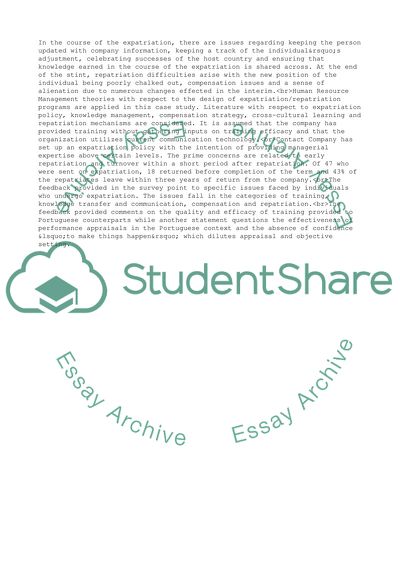Cite this document
(Managing People In A Multinational Context Research Paper, n.d.)
Managing People In A Multinational Context Research Paper. Retrieved from https://studentshare.org/management/1731087-a-hr-essay-assess-the-hr-problems-and-issues-revealed-in-the-survey-and-say-how-contact-should-now-act-to-minimise-the-incidence-and-impact-of-these-problems-and-issues
Managing People In A Multinational Context Research Paper. Retrieved from https://studentshare.org/management/1731087-a-hr-essay-assess-the-hr-problems-and-issues-revealed-in-the-survey-and-say-how-contact-should-now-act-to-minimise-the-incidence-and-impact-of-these-problems-and-issues
(Managing People In A Multinational Context Research Paper)
Managing People In A Multinational Context Research Paper. https://studentshare.org/management/1731087-a-hr-essay-assess-the-hr-problems-and-issues-revealed-in-the-survey-and-say-how-contact-should-now-act-to-minimise-the-incidence-and-impact-of-these-problems-and-issues.
Managing People In A Multinational Context Research Paper. https://studentshare.org/management/1731087-a-hr-essay-assess-the-hr-problems-and-issues-revealed-in-the-survey-and-say-how-contact-should-now-act-to-minimise-the-incidence-and-impact-of-these-problems-and-issues.
“Managing People In A Multinational Context Research Paper”, n.d. https://studentshare.org/management/1731087-a-hr-essay-assess-the-hr-problems-and-issues-revealed-in-the-survey-and-say-how-contact-should-now-act-to-minimise-the-incidence-and-impact-of-these-problems-and-issues.


